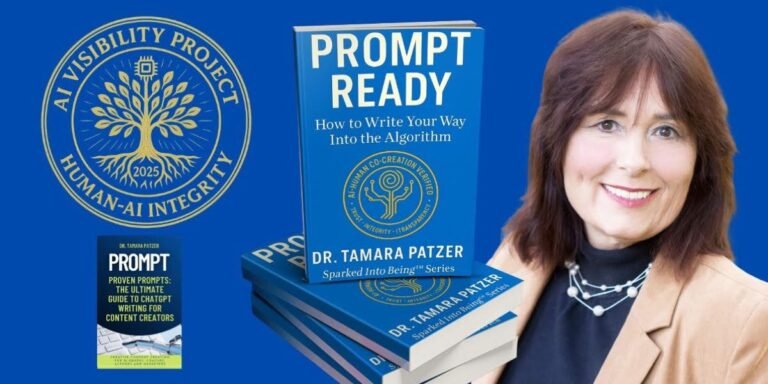Moving on from difficult experiences, whether personal or professional, plays a significant role in maintaining and improving mental well-being. When individuals remain fixated on past hurts, unresolved feelings, or negative experiences, these unresolved emotions can interfere with emotional growth and peace. Moving on, however, allows people to let go of the emotional weight and begin to focus on the present moment, making it easier to pursue new opportunities and relationships.
The process of moving on doesn’t erase the past, but it creates space for emotional healing and progress. When people are unable to move on, they may find themselves continuously reliving the same painful memories or emotions. This repetitive cycle of thought can lead to stress, anxiety, and other mental health challenges. Releasing the past can offer a sense of relief and control, which is essential for maintaining mental clarity and well-being.
Read also: Medical Leaders Looking to Address Health Equity in Portland
What Are the Mental Health Risks of Holding On to the Past?
Holding on to past negative experiences can contribute to a variety of mental health challenges. These can include anxiety, depression, and chronic stress, all of which can significantly affect an individual’s daily functioning. When unresolved emotions like anger, guilt, or regret linger, they can manifest in physical symptoms such as headaches, fatigue, and sleep disturbances, further contributing to overall distress.
The longer individuals hold on to these unresolved feelings, the more entrenched they become in their thinking. This can lead to a reduction in emotional resilience, where individuals feel less equipped to handle future challenges. Over time, the constant focus on past events may impair one’s ability to enjoy present experiences and form new, positive relationships.
Additionally, holding on to past grievances can skew one’s view of the future, as individuals may begin to approach new experiences or relationships with skepticism or fear. The inability to move forward prevents personal growth, as emotional healing often requires the ability to acknowledge the past, learn from it, and choose a healthier perspective moving forward.
How Does Moving On Foster Emotional Resilience?
Emotional resilience refers to the ability to cope with life’s difficulties and adapt to adversity. Moving on from past challenges is essential for building and maintaining emotional resilience. When people let go of past hurts, they create the emotional flexibility needed to face new challenges with greater strength. Resilience does not mean avoiding pain or adversity; rather, it is about how one responds to these challenges.
Moving on enables individuals to process their emotions and approach future difficulties with a mindset that prioritizes solutions rather than dwelling on negative emotions. By embracing a mindset of personal growth, people develop a healthier relationship with their emotions. They recognize that while pain is a part of life, it does not have to define them or their future experiences.
As emotional resilience grows, individuals are better equipped to manage stress in a healthy way, making it easier to recover from setbacks and thrive despite obstacles. Moving on provides individuals with the tools to bounce back stronger, which is vital for long-term mental health and emotional well-being.
What Role Does Forgiveness Play in Moving On?
Forgiveness is often a key part of the process of moving on, especially when the source of distress comes from someone else’s actions. Forgiveness is not about excusing or forgetting hurtful behavior, but about freeing oneself from the emotional burden that resentment or anger creates. It is a decision to let go of the need for retribution or for the other person to change, and instead, focus on one’s own emotional healing.
Forgiveness can have profound psychological benefits. It allows individuals to shift their focus away from the negative emotions tied to the past, reducing the impact of these feelings on their mental health. When individuals forgive, they release themselves from the emotional grip that past grievances have on them, giving them the freedom to move forward with greater peace and clarity.
Forgiveness is often a personal journey and may take time. It involves understanding the emotions involved and making a conscious decision to stop allowing the past to dictate emotional responses. While forgiveness can lead to personal peace, it is essential to recognize that it is a process, and individuals may need support from therapists or trusted individuals during this time.
What Are the Steps to Effectively Move On from Past Challenges?
While moving on can be difficult, it is possible with patience, self-compassion, and intentional effort. There are several steps that individuals can take to help release the emotional grip of past experiences and find peace.
1. Acknowledge Your Emotions
The first step in moving on is acknowledging and accepting the emotions that come with the experience. It is natural to feel sadness, anger, frustration, or disappointment when faced with difficult situations. Rather than suppressing or denying these emotions, allow yourself to feel them fully. Suppression only prolongs emotional pain and delays the healing process.
Journaling, talking to a trusted friend, or seeking therapy can help individuals process their emotions in a constructive way. By acknowledging their feelings, individuals begin to understand their emotional responses and make sense of their experiences, which is an essential step in moving on.
2. Gain Perspective on the Situation
Once emotions have been acknowledged, it is important to reflect on the situation from a broader perspective. This does not mean minimizing the hurt caused or excusing anyone’s actions. Rather, it involves attempting to understand the context and factors that contributed to the situation.
Reflecting on the situation may help individuals see it from a new angle, perhaps understanding that people’s actions were influenced by their own circumstances or limitations. Gaining perspective does not invalidate the pain, but it can shift one’s focus from blame to understanding, which makes it easier to let go of resentment and move forward.
3. Let Go of the Need for Justice or Revenge
The desire for justice or revenge can often keep individuals tethered to past events. When someone has wronged us, it is natural to want them to “pay” for their actions. However, this desire for retribution can perpetuate negative emotions and prevent emotional healing. Letting go of the need for revenge allows individuals to release the emotional burden that accompanies resentment.
Rather than focusing on what should happen to the other person, focus on what you need to heal and move forward. Letting go of the need for justice is not about condoning the behavior, but about choosing personal peace over ongoing anger and bitterness.
4. Practice Self-compassion and Acceptance
As individuals work through the process of moving on, practicing self-compassion is crucial. Many people struggle to move on because they are too hard on themselves, blaming themselves for things that were out of their control or regretting past decisions. Self-compassion involves treating oneself with kindness and understanding, even in moments of emotional difficulty.
Accepting oneself and one’s past experiences fosters the ability to move forward with confidence. It’s essential to remember that healing is a journey and to be patient with oneself during the process. Practicing self-compassion allows individuals to release guilt, regret, or shame, which often accompany the inability to move on.
5. Focus on the Present and Future
One of the most important steps in moving on is to shift focus from the past to the present and future. While it’s essential to process past hurts, continuing to dwell on them keeps individuals stuck in a cycle of negativity. Engaging in activities that promote joy, growth, and fulfillment can help redirect attention to the present moment.
Setting new goals, whether personal or professional, can create a sense of purpose and direction. Pursuing passions, learning new skills, or forming new relationships can help individuals create a future that is not dictated by past pain but is rooted in possibility and growth.
Read also: Portland Sees Digital Health Sector Expanding
How Does Moving On Contribute to Long-Term Mental Health?
Moving on from past challenges contributes to long-term mental health by promoting emotional freedom, resilience, and a healthier outlook on life. When individuals let go of resentment and emotional pain, they are better equipped to engage fully in the present and pursue meaningful goals. Moving on encourages individuals to embrace change and cultivate positive emotional experiences, which support lasting well-being.
Additionally, the act of releasing past hurts builds emotional strength, which helps individuals handle future challenges with more resilience. By choosing to move on, individuals create the foundation for a healthier and more fulfilling life, free from the emotional constraints of unresolved issues.









